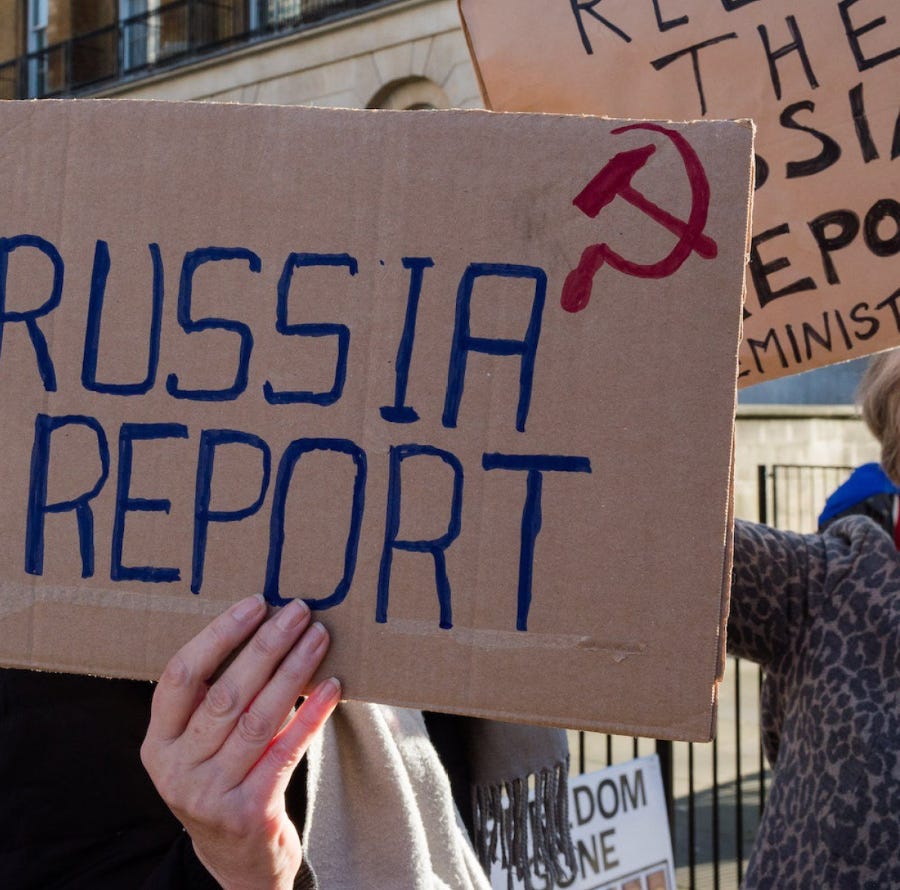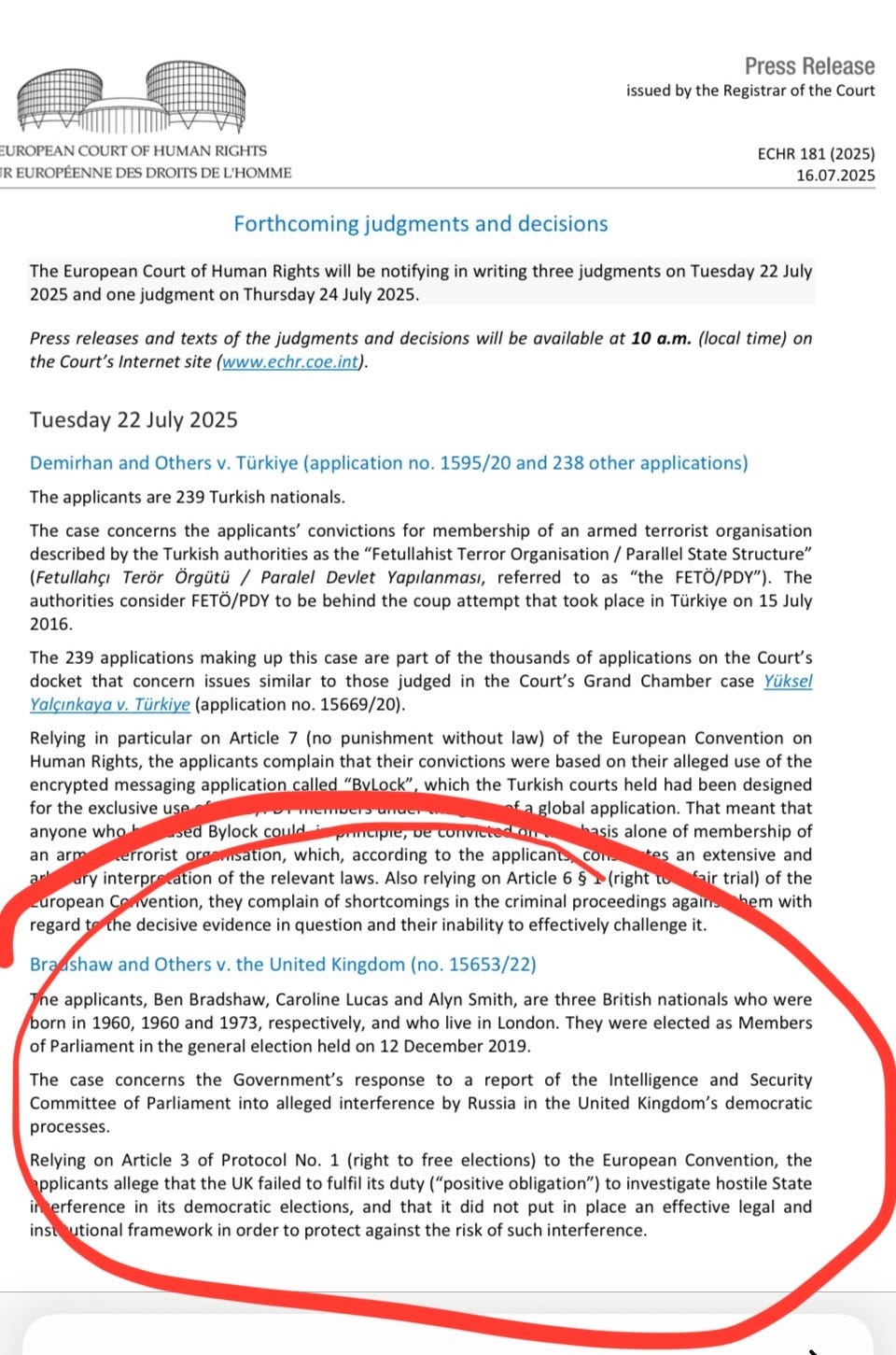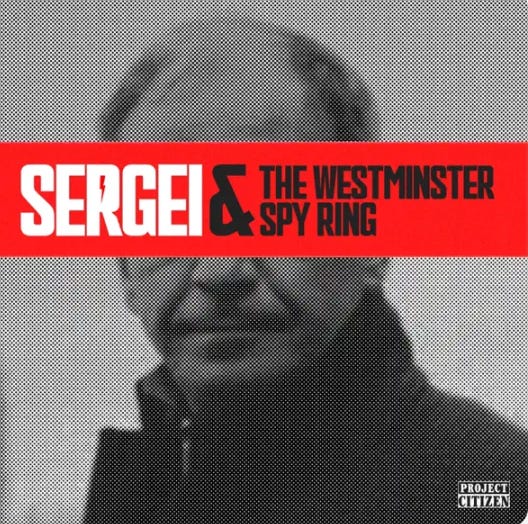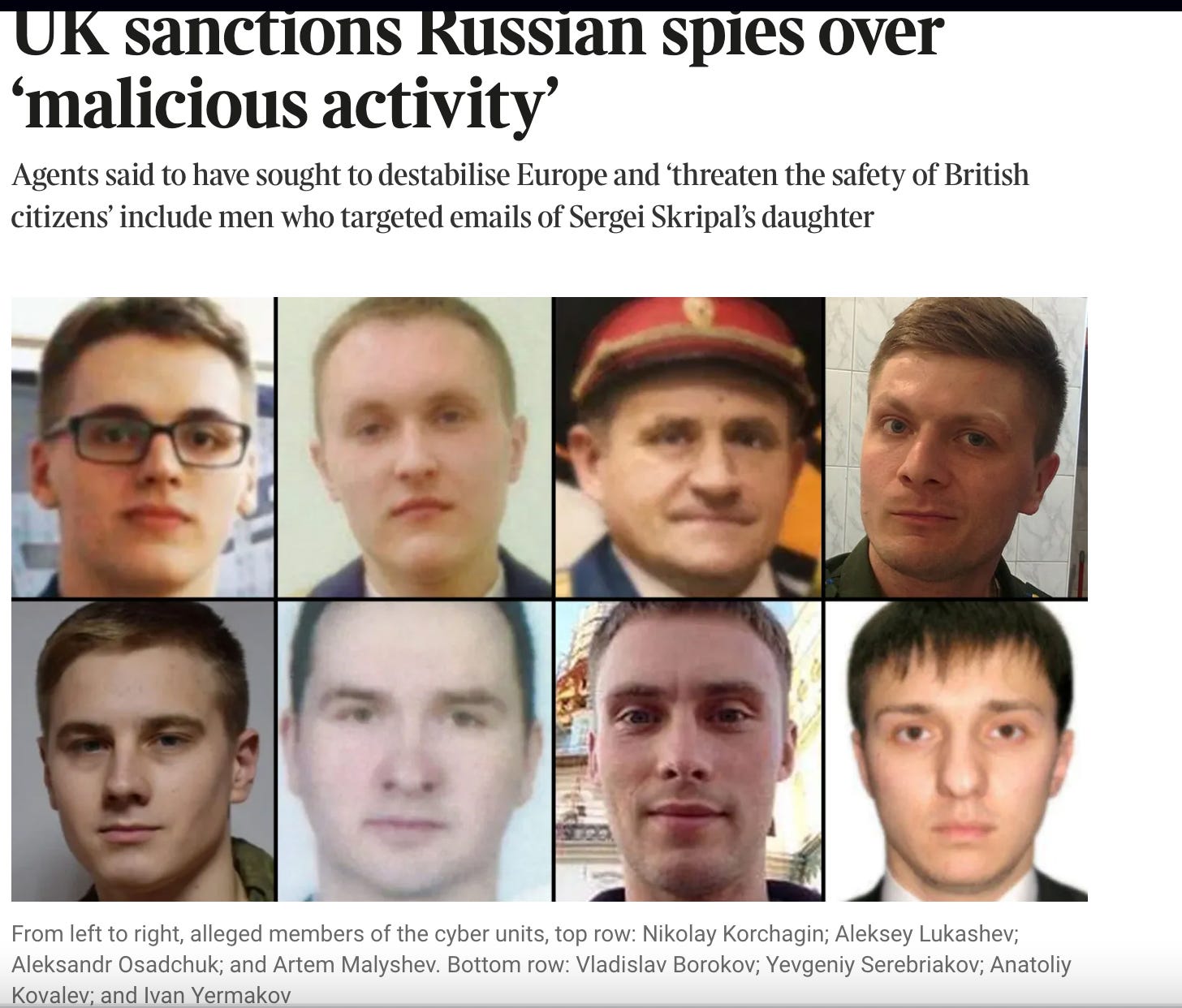A note on what I’m doing and why. I’m an investigative journalist who worked for the Guardian for 20 years latterly investigating the intersection of politics and technology that included 2018’s exposé of the Cambridge Analytica/Facebook scandal. The opaque and unaccountable Silicon Valley companies that facilitated both Brexit and Trump are now key players in an accelerating global axis of autocracy. I believe this is a new form and type of power that I’m committed to keep on exposing: Broligarchy.
Tomorrow, the European Court of Human Rights will hand down a judgment that will have profound implications for the future of elections and national security in the UK and across Europe.
Bradshaw & Others v the United Kingdom
Bradshaw is Ben Bradshaw, an ex-Labour MP, and the ‘Others’ are the ex-Green MP Caroline Lucas and ex-SNP MP, Alyn Smith. (The case has taken so long they’ve all now left parliament.) And it’s a big one: they’re suing the UK government. They argue that its refusal to investigate foreign interference in UK elections is unlawful. That it’s a fundamental breach of UK citizens’ human rights. And that it’s a profound threat to our ability to hold free and fair elections in the future.
It’s a big deal. In all sorts of ways. And although it has literally taken years to get to this point, the issue has only become more – not less – acute.
If the court agrees, it means that we will finally – finally! – get a proper inquiry into foreign state interference in UK elections. An inquiry that, crucially, would include an investigation into the role Russia played in the EU referendum. Aka, the seeping wound at the heart of British life that no government has dared to ever touch.
We know the Kremlin attacked the referendum vote in 2016 in the UK at the exact moment it was also attacking the presidential election in the US. We have chapter and verse on that that because a huge body of facts was established by Congressional and FBI inquiries. And although President Trump is seeking to delegitimise those inquiries and everyone involved in them, those facts were established through rigorous investigations. In Britain, however, there’s been tumbleweed.
It was a report by parliament’s Intelligence and Security Committee in 2020 – the Russia Report – that precipitated this case. A report that confirmed Russian interference in UK politics and elections and that Prime Minister Boris Johnson personally suppressed before the crucial November 2019 election that gave him the mandate for Brexit. A report that led me – far more out of a sense of despair than hope – to approach a bunch of MPs and a team of crack human-right lawyers to see what, if anything, that we could do.
Tessa Gregory and Tom Short from Leigh Day puzzled it out and with the help of expert counsel decided that there was a case. With the support of the Citizens, a small non-profit, I co-founded, we launched a crowdfunder and gathered together an initial group of six cross-party parliamentarians. They came together to challenge the government on its refusal to have an inquiry in the UK High Court. It was the first time sitting MPs had ever done so on grounds of national security. It was a hugely credible cross-party group. And it failed on what we believed were ridiculous grounds.
This was before Russia’s invasion of Ukraine, before the UK government had taken any action against Russian-born oligarchs or banned RT from the airwaves. The judge had zero grasp of what Russian information operations conducted by highly trained military officers involve. He likened their activities to a “shock jock” radio show (read Luke Harding’s write-up in the Guardian here) and refused the claim.
There was one final play of the dice, Tessa and Tom advised. The European Court of Human Rights in Strasbourg. Even though Britain has left the EU, we’re still signatories to the European Convention of Human Rights and they argued that the UK government was failing us, its citizens, in one of the most fundamental obligations of any state: the right to a free and fair election. They said that its refusal to investigate foreign state interference amounted to a breach of our human rights and that there was a novel case to bring. That under article 3.1 of the convention, states have a ‘positive obligation’ to protect that right and in this case that involves investigating foreign state interference.
Tomorrow, we find out whether or not the court agrees.
The European Court of Human Rights is a hugely important institution that allows citizens across Europe challenge their own governments on fundamental issues of human rights. In Britain, the likes of the far-right Reform leader, Nigel Farage, bash the court as being some sort of ‘woke’ challenger to UK national sovereignty. But in a fraying international order, in a continent in which a hostile state is seeking to destroy an entire nation, in a country which Nigel Farage’s connections to Donald Trump and Kremlin sympathisers across Europe haven’t been the subject of any sort of inquiry, it feels like a beacon. And while we still have the court, regardless of its decision in this case – ultimately it’s a narrow legal argument that may or may not succeed – it’s the last bulwark against the illegal overreach of governments that seek to deny citizens of their own rights.
It was such a longshot to take the case. We were warned that it would take years – and it has – and I’d long given up the idea we’d ever get a judgment. And then, with no warning, we learned a week or so ago, that it had heard ‘on the papers’: judged on submissions with no oral argument. We’ve uploaded all these to the Citizens website for the legal super nerds out there.
It’s a slight quirk fate that one of the MPs who was part of the original challenge – Chris Bryant – is now a minister. And the barrister who drafted the submission, Richard Hermer, is now the government’s Attorney General, the highest lawyer in the land. He’s now in the position of defending a case that he drafted and wrote.
Who knows what the outcome will be. Will the UK state finally be forced to shine a light on the murkiest election in modern British history? With everything that entails: an inquiry into how Silicon Valley tech platforms were weaponised? Into why the security services turned a blind eye? Into the politicians who instructed them? And why we allowed all the Kremlin’s men to wash their money here with state-sanctioned approval??
Imagine.
To be honest, I can’t even begin to.
It’s that. Or the end of the road?
Let’s see.
Questions, questions
I spent most of the weekend not-writing this newsletter. And what I realised today is that I was not-writing it because there’s so much in this whole subject that’s highly personal – and still difficult – for me.
I have my own relationship with the failure of the British state around this issue. Its suppression of the truth and refusal to investigate has had direct personal ramifications on my life.
I expect the case to fail. As the state has failed at every step of the way in this story. As I felt failed by the institutions that should have been there to protect me, a journalist, who was just trying to do my job.
I wasn’t protected. The truth was suppressed. It’s hard to believe that this could be in any way different.
Let’s see.
Sergei & the Westminster Spy Ring
Your reminder that if this all seems a bit complicated, this investigative podcast (that at one point went to number one in the Apple podcast chart earlier this year) was our attempt to tell the story in a livelier, more human way. For hints on why Prime Minister Boris Johnson was so keen to bury the truth of both his and Britain’s relationship with certain politically exposed Russian individuals, I recommend episode 7: Chemical Attacks in which we detail new info about his encounter with a KGB colonel in an Italian villa after hotfooting it out of a NATO meeting minus his security detail. Nothing to see here.
What’s so dumb is that even the UK government now admits the Russians interfered…
The UK Foreign Secretary, David Lammy, announced last week a load of sanctions against 18 Russian spies accused of attacking British interests in various ways. It comes years after the US sanctioned some of the same people for attacking the 2016 US election.
The Times splashed it on its front page. The UK press is brililant at covering Russian spies when it’s non-political, non-controversial, non-Brexity.
During my many years of trying to draw attention to this issue, the now-Foreign Secretary David Lammy who sanctioned these individuals was one of the strongest voices in opposition. He backed calls for an independent inquiry. He shared a stage with me and gave me endless quotes for endless articles.
Let’s see what happens tomorrow.
Good night.
PS I have so many updates and bits of content to share. Apologies for the slowness. But here, first up, is last week’s conversation with the brilliant Roger McNamee (ex Silicon VC and mentor to Mark Zuckerberg) and Carissa Veliz (Oxford philosopher and all-round brilliant brain on ‘Privacy is Power’, aka how Silicon Valley is surveilling us and how we need to be freaked out by what that means.
More here (including a transcript) on the Citizens’ Substack.
This post has been syndicated from How to Survive the Broligarchy, where it was published under this address.




